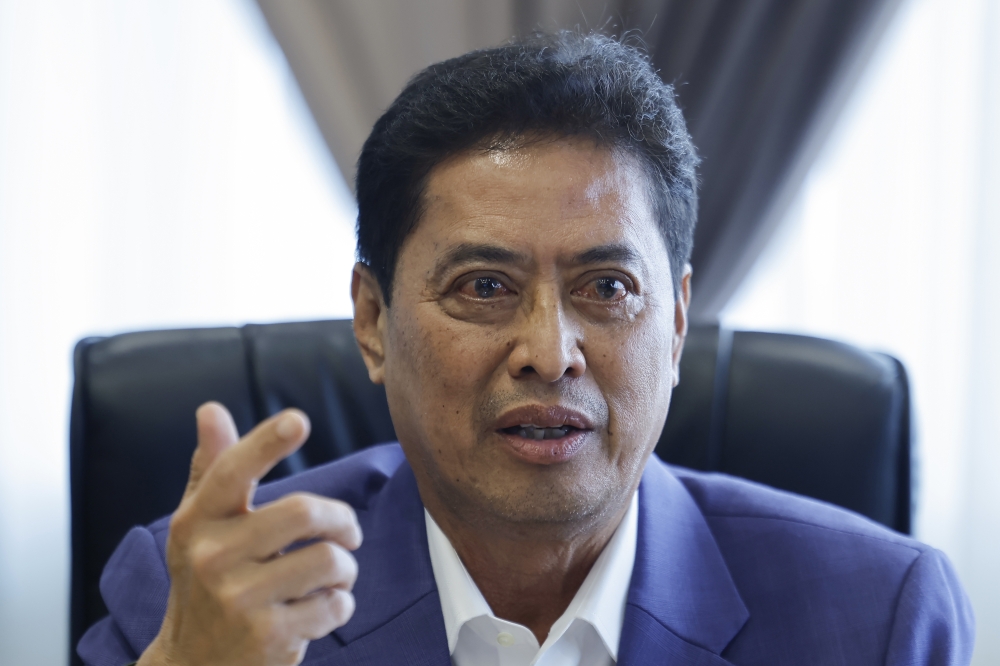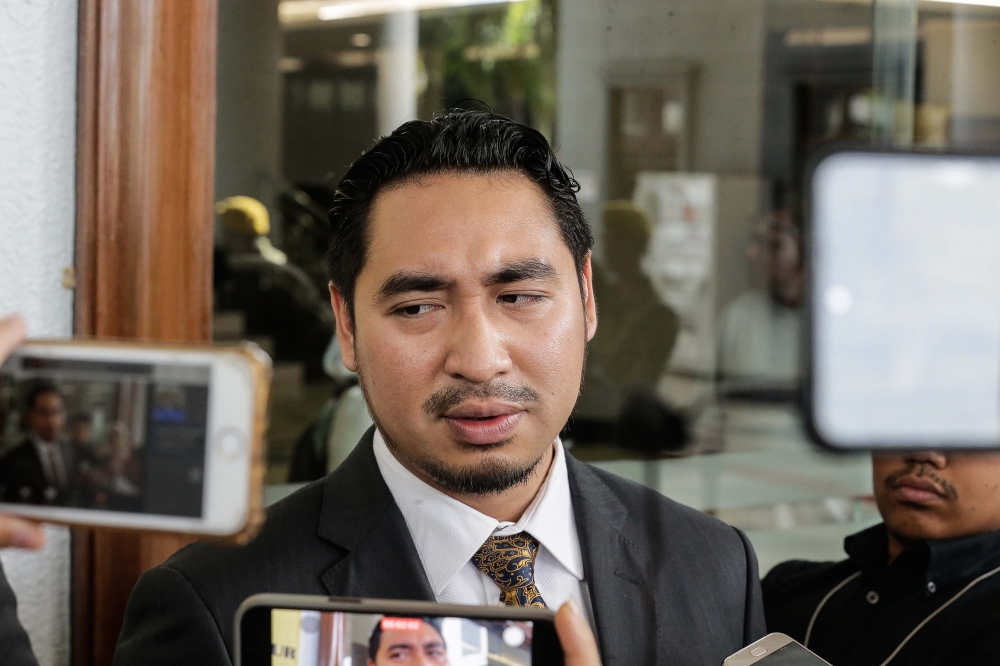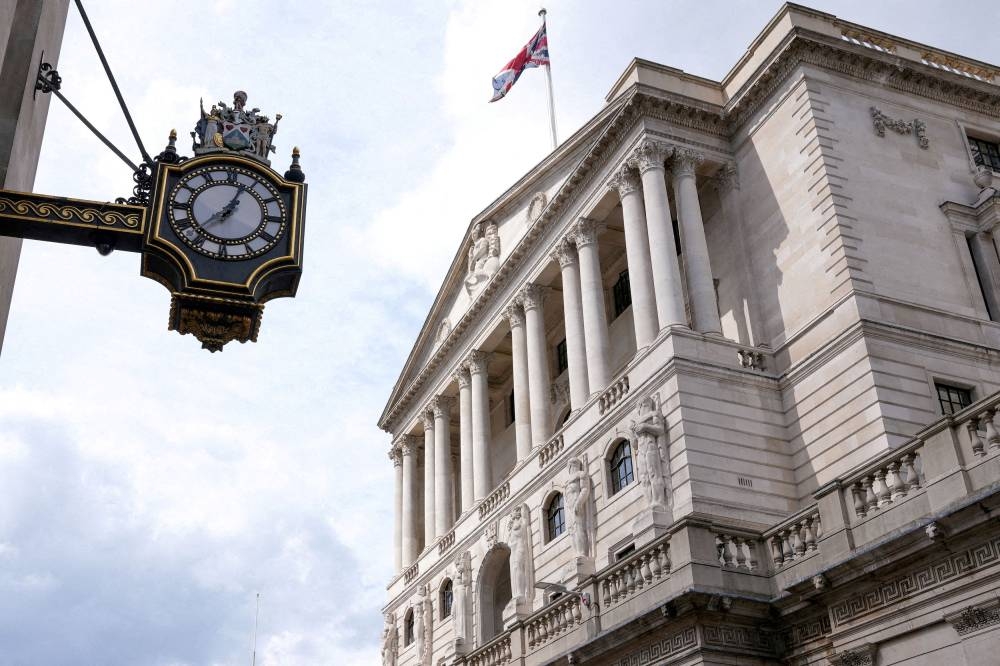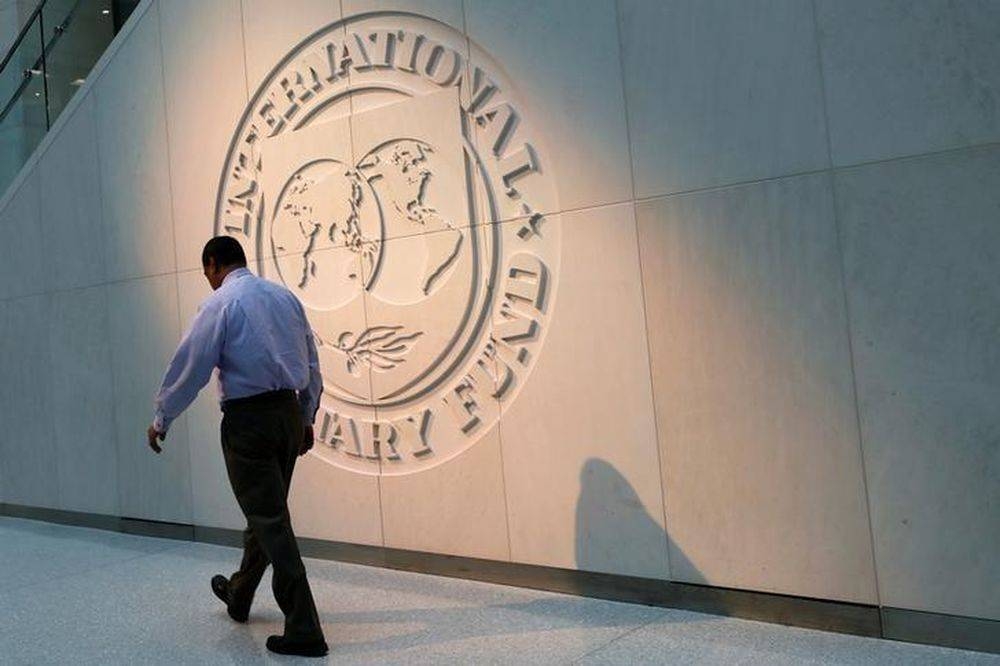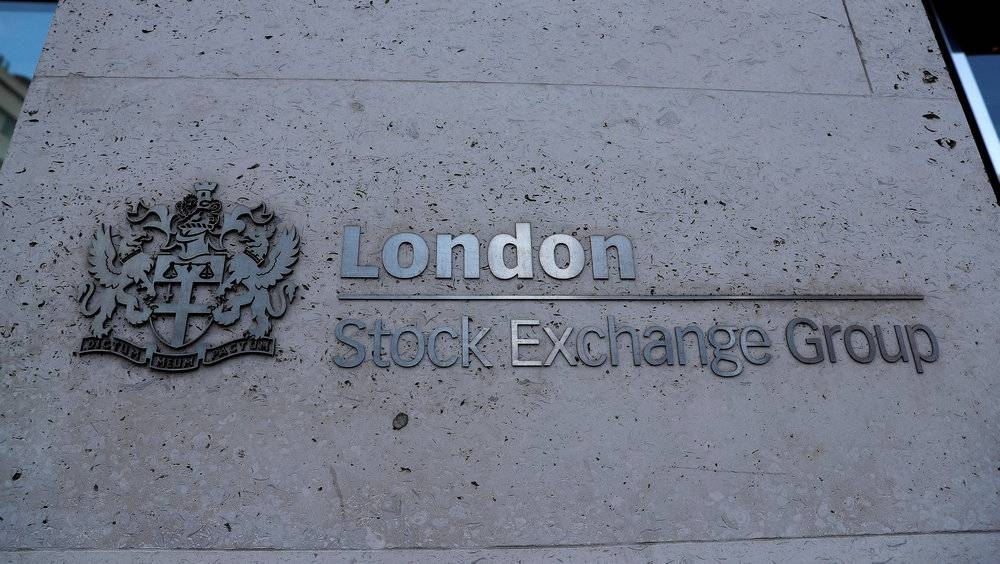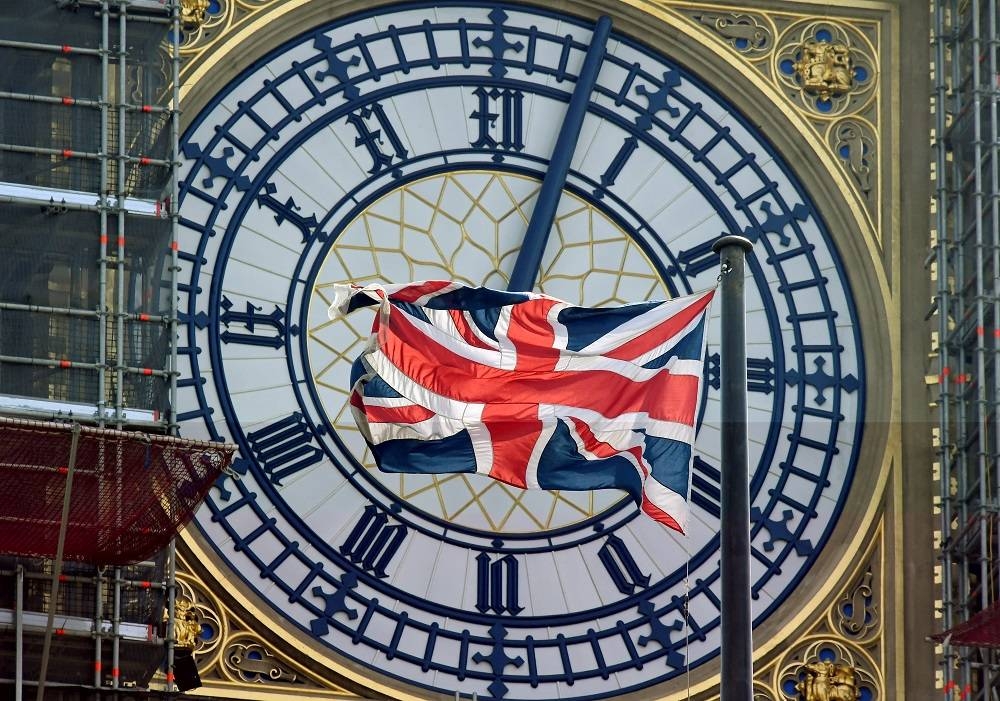LONDON, Sept 28 — The Bank of England stepped today to shore up market confidence after the International Monetary Fund criticised Britain’s inflation-fighting budget.
In a surprise move, the BoE announced it was temporarily buying up long-dated UK government bonds “to restore orderly market conditions”.
The pound promptly slumped 1.7 per cent to US$1.0552 (RM4.88) before clawing back ground.
There was respite elsewhere, with the UK government’s 30-year bond yield retreating to 4.44 per cent, having hit a 1998 peak at 5.14 per cent.
The BoE intervention followed criticism yesterday from the IMF, which argued that Britain’s budget could increase inequality and worsen inflation.
Credit ratings agency Moody’s also waded in overnight with a warning about soaring debt.
‘Finally intervenes’
“So, the Bank of England finally intervenes after coming under so much pressure to act,” said City Index analyst Fawad Razaqzada.
“The BoE’s intervention is an attempt to soothe investor nerves after they were spooked by last week’s mini-budget.”
Finance minister Kwasi Kwarteng’s big tax cuts and energy price freeze, aimed at boosting the UK’s recession-threatened economy, appeared to have had the opposite effect as traders warn of ballooning debt to pay for the incentives.
Following last Friday’s budget, UK bond yields soared and the pound hit a record low at US$1.0350, perilously close to parity.
Critics added that Kwarteng’s measures would benefit the rich more than the poorest, as millions of Britons suffer from a cost-of-living crisis.
“We have acted at speed to protect households and businesses through this winter and the next, following the unprecedented energy price rise,” the Treasury said after the IMF criticism.
“We are focused on growing the economy to raise living standards for everyone,” it added, blaming sky-high oil, gas and electricity prices on Russia’s invasion of Ukraine.
IMF advice
In a highly unusual intervention, the IMF late yesterday said it was “closely monitoring” developments and urged the government in London led by new Prime Minister Liz Truss to change tack.
The Fund added: “We understand that the sizable fiscal package announced aims at helping families and businesses deal with the energy shock and at boosting growth via tax cuts and supply measures.
“However, given elevated inflation pressures in many countries... we do not recommend large and untargeted fiscal packages at this juncture.”
The IMF said the “UK measures will likely increase inequality” and stressed the importance of fiscal policy not working “at cross purposes to monetary policy”.
Analysts warned that Britain’s controversial measures could force the BoE to hike interest rates far higher than forecast.
“Expectations that there will be a super-size interest rate hike coming from the Bank of England to try and counter the government splurge on tax cuts and spending have increased,” Hargreaves Lansdown analyst Susannah Streeter noted today.
Many central banks, including the BoE, are aggressively hiking interest rates in a bid to cool decades-high inflation.
The BoE today warned there was a “material risk to UK financial stability” should current market conditions continue.
Purchases “will be carried out on whatever scale is necessary”, added the bank headed by governor Andrew Bailey.
Tax cuts
In his budget, Chancellor of the Exchequer Kwarteng cut the highest rate of income tax and scrapped a cap on banker bonuses.
He also, however, announced a plan to lower income tax for all workers.
Conservative party head Truss appointed Kwarteng to replace Rishi Sunak, who reached the final two in the race to be prime minister.
Sunak had hit out strongly at Truss’s promise of tax cuts, arguing that the UK priority was to first bring down the nation’s inflation rate that stands at a near 40-year high of 9.9 per cent.
Moody’s called Britain’s new fiscal policy regime “credit negative”, adding that a sustained confidence shock could “permanently” weaken its debt affordability.
Kwarteng has said he would wait until November 23 to outline plans on controlling government debt. — AFP





